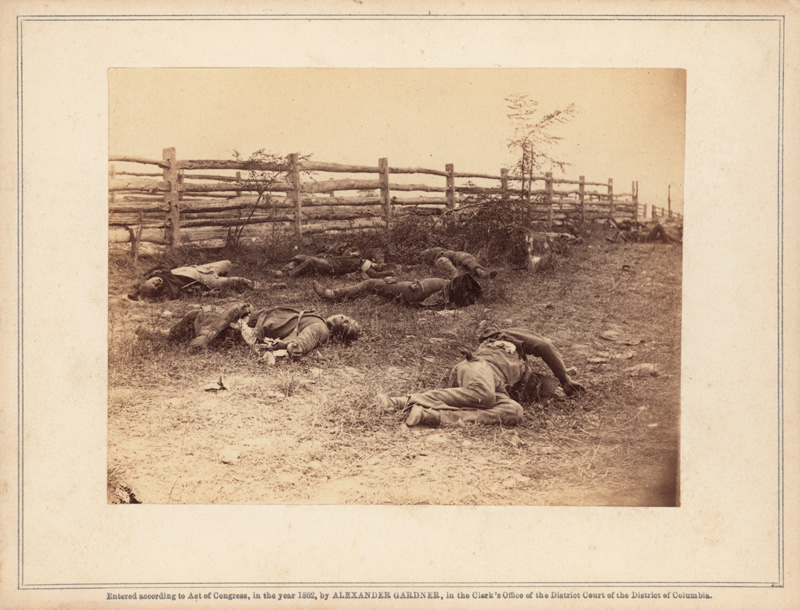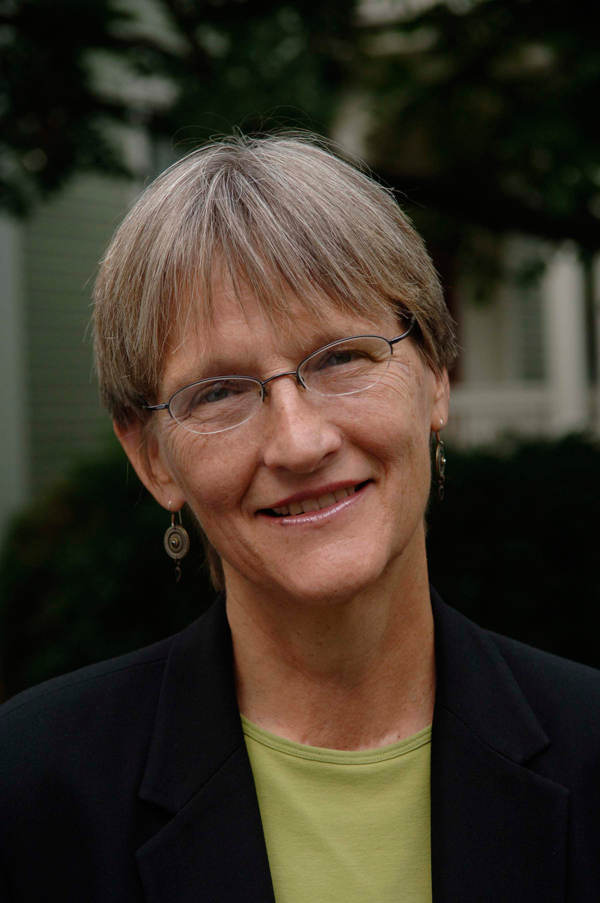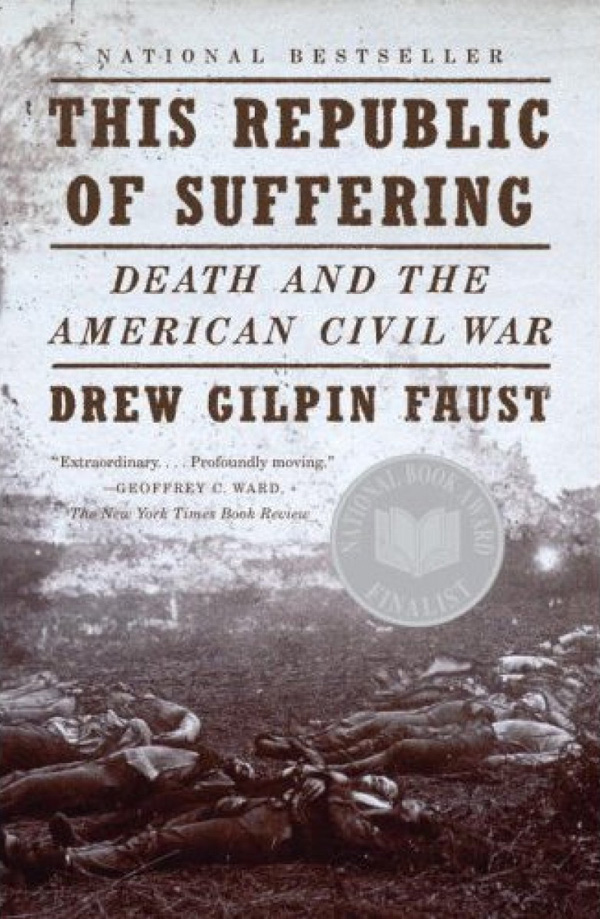The Huntington’s blog takes you behind the scenes for a scholarly view of the collections.
The Drew Gilpin Faust Effect
Posted on Mon., Sept. 17, 2012 by

Alexander Gardner (1821–1882), Confederate Soldiers, As they fell inside the fence on the Hagerstown Road, at the Battle of Antietam, September 1862, albumen print, 3 1/4 x 4 5/8 in. Huntington Library, Art Collections, and Botanical Gardens.
Tuesday night, PBS will premiere “Death and the Civil War,” an installment of “American Experience” produced by Ric Burns and inspired by the 2008 book This Republic of Suffering: Death and the American Civil War, by Drew Gilpin Faust. The broadcast coincides with the anniversary of the Battle of Antietam, which took place 150 years ago today, on Sept. 17, 1862. It still ranks as the bloodiest day in American history, with casualties of about 23,000 soldiers from both sides of the conflict.
Burns, of course, is the younger brother of Ken Burns, whom he collaborated with more than 20 years ago to produce “The Civil War,” the nine-part documentary that brought the Civil War into the homes of 40 million viewers while also transforming the art of documentary filmmaking. The technique of panning across or zooming in slowly on archival photos, with accompanying voiceover, has since become known—to admirers and critics alike—as the Ken Burns Effect.
Faust, the current president of Harvard University and the historian who inspired Ric Burns’ new documentary, has had her own far-reaching impact. Huntington curator Jennifer A. Watts credits Faust with inspiring her new photograph exhibition, “A Strange and Fearful Interest: Death, Mourning, and Memory in the American Civil War,” which opens at The Huntington on Oct. 13. The title of her show is drawn from a statement made by Oliver Wendell Holmes Sr. in response to imagery from the Battle of Antietam: “The field of photography is extending itself to embrace subjects of strange and sometimes of fearful interest.”
In 2008, Faust lectured about her book at The Huntington (with Watts in attendance), recounting the story of Holmes’ search to find his injured son, Union Lieutenant Oliver Wendell Holmes Jr., after the Battle of Antietam. Watts bought a copy of the book and soon realized she could use the remarkable Huntington photograph collection to explore how the nation grappled with death on such a monumental scale.
Since publishing her award-winning book, Faust has become a footnote—in the best sense of the term—cited frequently in books and articles published over the past four years, perhaps most prominently in J. David Hacker’s December 2011 article in the journal Civil War History, which argues that the long-accepted estimated of Civil War dead, 620,000, is too low. Hacker’s new estimate of 750,000 has been publicized in the New York Times, NPR, and the BBC while winning effusive praise from respected historians such as James McPherson and Eric Foner.
Hacker himself credit’s Faust’s work for inspiring his study. He writes: “This essay is a direct response to [Pulitzer Prize–winning historian] Mark Neely’s recent contention that Drew Gilpin Faust’s work on death and dying in the war ‘serves most importantly to show how old and how little analyzed are figures so important to understanding the Civil War.’”
In her own bookkeeping, Faust made room for Walt Whitman’s accounting. The famed poet tended thousands of wounded soldiers during the war and wrote about them in verse. “For Whitman,” said Faust at her Huntington lecture in 2008, “it was not the poetic forms that mattered most, but the dead themselves. He designated them, at the end of the war, ‘The Million Dead…infinite and intimate…all, all, all finally dear to me.’”
“To understand even an inkling of this war,” said Faust, quoting Whitman, “one had to understand the dead. ‘But,’ he said, ‘The real war will never get in the books.’”
If Burns and Watts and Hacker and countless others have any say, Faust has proven Whitman wrong on at least one score.
Check your local listings for the broadcast times of “Death and the Civil War,” which has its national premiere on PBS stations on Sept. 18. Drew Gilpin Faust and Ric Burns will appear in conversation at The Huntington on Oct. 31, 2012, however the event is filled and The Huntington is no longer accepting reservations.
UPDATE: You can now download the audio from this lecture from iTunes U.
Related content on Verso:
The Work of Death (Nov. 1, 2012)
This Saturday, Sept. 22, The Huntington opens the exhibition “A Just Cause: Voices of the American Civil War,” curated by Olga Tsapina, the Norris Foundation Curator of American Historical Manuscripts. Its companion show, “A Strange and Fearful Interest,” will be on view in the Boone Gallery at The Huntington from Oct. 13, 2012, to Jan. 14, 2013.
Matt Stevens is editor of Verso and Huntington Frontiers magazine.

